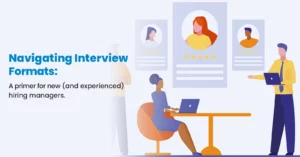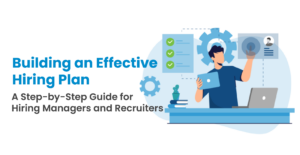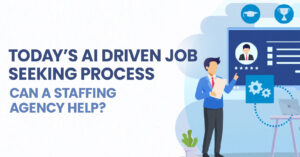Hiring is one of the most crucial steps an organization faces when building for success, and hiring the wrong people can have a detrimental effect on any business – wasting time, money and resources.
Although avoiding hiring mistakes doesn’t guarantee your organization will experience lower turnover rates, it will help identify areas of weakness in the process.
When recruiting talent, below is a list of common hiring mistakes you don’t want to make.
Lack of cultural fit
A recent study by Deliotte found that 94% of executives and 88% of employees believe that a distinct workplace culture is important to an organization’s success. Why? Because it’s easier to motivate your employees to achieve professional and personal growth when their own beliefs align with your business’s mission, vision and values.
Skills can always be developed but attitude cannot. When your people are in tune with the organization’s culture, employees are more likely to be happy in their working environment, making them less likely to leave. Not hiring the right cultural fit will not only affect hiring costs, but may also affect your company’s reputation if an employee leaves a negative review about your corporate culture on Glassdoor or other review sites.
Neglecting soft skills
One of the most overlooked qualities when seeking talent is failing to identify a candidate’s soft skills.
Finding talent with the desired level of experience and skill is crucial, but the most successful hires also possess the characteristics and traits needed to excel in their role. Soft skills characterize how a person interacts in their environment and engages with others. If there is a significant personality clash or process difference with people on the team, it can cause interpersonal problems which can also translate into work problems.
Soft skills are also versatile and transferable and, as such, can be applied to a variety of duties or workplace situations. Strategic organizations don’t just hire for the role on the piece of paper. They also hire and plan for future roles that may appear. Candidates with soft skills are great assets, as they’re very adaptable employees already ingrained in the company culture.
Furthermore, they already possess company-specific tacit knowledge (knowledge that is difficult to transfer to another through written means or orally. Instead, this knowledge is learned through experience on the job), having a deeper and a more mature understanding of the business and its best practices.
Hiring biases and lack of diversity
In an Ideal world, an interviewer evaluates a candidate based exclusively on their professional qualifications. However, this isn’t always the case in reality. It’s possible for hiring managers to sometimes discriminate and dismiss candidates without even knowing it. A recent study by National Bureau of Economic Research found that when reviewing resumes, specifically looking at just the contact details, names associated with Caucasian decent received 50% more callbacks than those associated with African decent—regardless of the industry or position.
As workplace diversity becomes more important to candidates, with 67% of job seekers considering a diverse workplace important, it’s critical that hiring managers become aware of unconscious biases to not only welcome more culturally diverse groups, but to not decrease their talent pool.
Latest research shows that companies in the top quarter for gender or racial and ethnic diversity are 35% more likely to have financial gains above the national industry median.
Living in a global economy, diversity can increase the attraction of top talent as well as help companies break through into foreign markets (ex. Hiring expats).
Being married to education
Many positions seek a minimum education level, regardless of the role. However, this qualification can potentially filter out very qualified candidates, decreasing your talent pool.
Technology and industry trends are ever evolving, and although a candidate may not have the desired formal education, workplace experience can often trump a degree or diploma. By sifting out candidates purely on education, you may leave behind many excellent and knowledgeable individuals. Michael Schrage from Harvard Business Review argues that, “What really matters are skills. The grievously undervalued human capital issue here isn’t quality education in school but quality of skills in markets.”
The Voice of Talent: Return to the Office Report
Procom recently surveyed over 1,000 knowledge workers to discover how and where they prefer to work as offices re-open across North America.
The Voice of Talent Report offers actionable insights into what workers expect in relation to mandatory vaccinations, remote work preferences, The Great Resignation, COVID-19 safety measures and more.
Access your complimentary copy to discover how to attract talent in a post pandemic world:
{{cta(‘876b6743-23dc-425b-b245-80dba677a9c7′,’justifycenter’)}}




